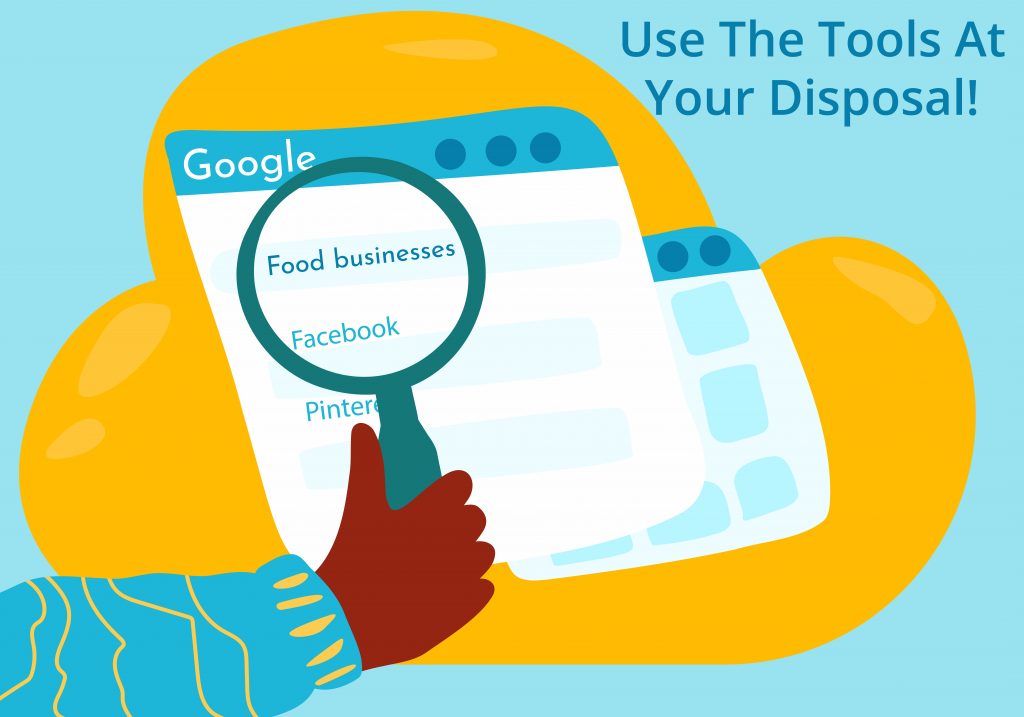Food! That one simple word can turn a hungry stomach into a full-blown hurricane! Crisis averted, we all have that one (or more) foods that we’re so passionate about that we decide to start a food business. Starting a traditional business is tricky but we have nine clear and concise steps to make your journey that much easier.
1. Start Small but Think Big
As with any potential business venture, you need to start with a general idea. This idea can be the result of your passion for food in which you want to share it with your community. Whatever it is, you need to start small while focusing on an overall goal that you aim to achieve.
Start small by understanding the impact that your food business will have on your local community. Ask yourself straightforward questions. Is there a market for it? Is the community likely to support it? Will my product/s be in too small of a niche? Successfully answering these initial questions can lay the foundation for your food business.
2. Research, Research, Research

With your idea fully fleshed out and on paper, you must complete one of the more laborious tasks that no one enjoys doing – research. Researching your prospective target market, industry, potential suppliers, industry-related laws, start-up costs, and ability to turn a profit, will help determine not only if a venture is possible but also if it’s really something that you want to pursue long term.
When compiling your research, ensure that you ‘mix it up and collect information from a variety of sources. This includes searching for articles on Google, scrolling through Facebook and Instagram to understand how food businesses advertise on social media, and speaking to local farmers and people within your community. Your friends may think you have a fantastic idea on your hands but does everyone else have that same mentality?
3. Hire Experts to Develop and Enrich Your Food
As the foundation for your food business begins to take shape, it’s vital that you identify and hire experts that understand the complex nature of the food industry. Experts often take the form of ‘food consultants’ whose primary tasks are to help source ingredients and ensure that the final product is approved by the relevant authorities.
The food industry is known to have several ‘strings attached’. Successfully hiring a food consultant or other expert will help mitigate issues that arise and keep you on the correct path as your food business begins to expand.
4. Begin to Scale Your Business

Scaling your business is crucial for long-term growth and success. Without scaling, you risk the chance of reduced profits and margins as running costs steadily begin to increase. You may have started in your kitchen at home, but you need to identify a space and equipment that will enable your venture to be more efficient and sell more products.
Don’t take the drastic step of taking a loan and buying a factory that has sat still for several years. Instead, look to rent a smaller space that requires a smaller cash injection to get up and running. Take small, incremental steps as your food business continue to grow.
5. Focus on Packaging
We all tend to focus on the price of a product but how often do we buy something that has incredible branding on the packaging – very often! The packaging of your product/s is the first opportunity to WOW and inform your prospective customers. By grabbing their initial attention, you can then provide reasons as to why your product is superior while ensuring that it’s supported by accurate nutrition facts.
Keep in mind that the packaging of your products represents the overall brand and identity of your food business. Ensure that they are all aligned to communicate a comprehensive message to your target audience.
6. Sustainability – Yes, or No?
Sustainability is the word on everyone’s lips. When you think of it, you may understand it to be the shift towards electric cars, renewable energy, and regenerative farming – but there’s slightly more to it.
Sustainability is not just about the overall environment, but it also includes your local community and extended society. The potential impact that you may have on all three of these departments must be considered. Ask yourself, how will my food business positively influence my community? What impact will it have on the environment? How can I ensure that my actions are supported by society and relevant governing bodies?
7. Always Be Compliant
It’s worth repeating that you must always be compliant with the stipulated laws and guidelines provided by the relevant governing entity. It, unfortunately, isn’t enough to check all the boxes as you start your business – these standards must be always adhered to. This is non-negotiable!
Put measures in place to avoid any potential mistakes by conducting frequent tests of ingredients and maintenance of equipment. This will alleviate any downtime and keep things moving along swiftly.
8. Remain Authentic and Spread the Word

It’s extraordinarily common to see businesses lose their authenticity and connection with their target audience. Thankfully, you’re already in a position to avoid this pitfall. As a small business, your authenticity is what makes you special and separates you from your competition. Stay true to your mission and be transparent with your suppliers and target audience – always!
With your authenticity intact, how are you going to spread the word about your business? A comprehensive digital marketing strategy is essential here as it will determine the social media channels that you will utilize and the type of message that you want to communicate to your audience. But marketing in the food industry is notoriously difficult – however, Grammedit helps overcome this.
Grammedit is a dedicated reputation management platform and social media directory that enables small businesses to enhance their brand and communicate more effectively with their target audience. Not only can you curate your brand, but you’re now able to expand your social media community in a way that’s never been done before.
9. Be Patient, Stay Resilient
Success is something that’s not achieved overnight. It’s the culmination of dedicated research, long nights (possible with crying), along sheer determination and will. Be patient, keep your head down and continue to put in all those hours of work. Success is just around the corner.
The Additional Benefits of Grammedit
Building a following on social media in the competitive food industry can seem daunting. But Grammedit has the necessary tools to establish your business and attract a brand- new following. By partnering with Grammedit today, you can expect to receive these additional benefits to expand your reach beyond your local community.
- Greater brand recognition.
- Facilitates greater communication between you and buyers
- Accurate and detailed analytics.
- Increase in site traffic.
- Attracts a larger, dedicated following on social media – especially Instagram.
- Consistent flow of prospective customers.
- Greater authority within your niche – a result from the review and star rating process.
- VIP access to the first flexible ecommerce platform for social media (coming soon).
Final Thoughts
You’re not alone in the pursuit of establishing your food business! There are thousands of like-minded people just like you who are determined to pursue their food passion and make a sustainable income from it. You already have the framework for your success but speaking with those people who have already achieved it, will hold you in good stead during the trials and tribulations of your start-up.
Have you launched a successful food business? Share the challenges that you overcame to achieve success in the comments section below.